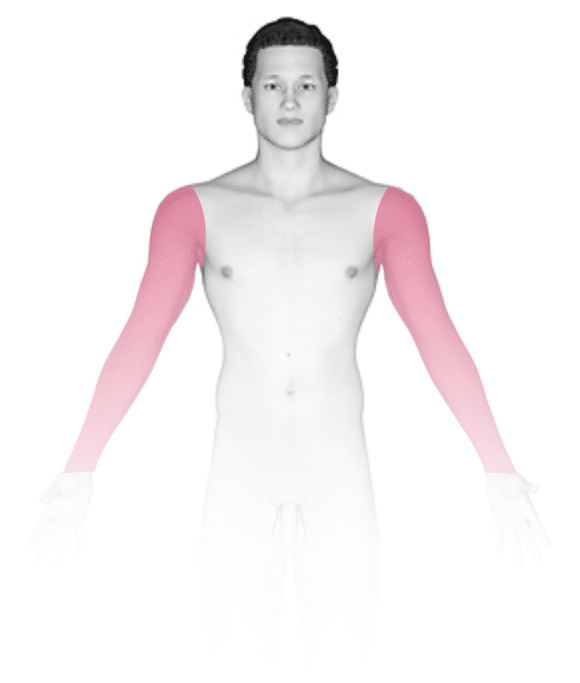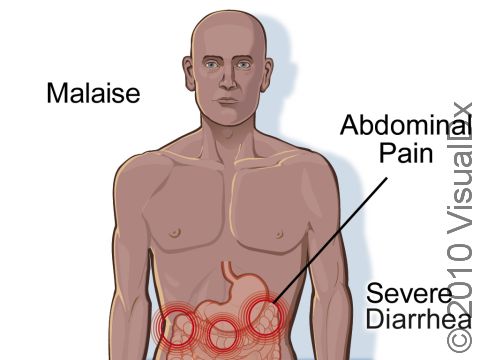E. Coli
Escherichia coli, more commonly known as E. coli, is a group of bacteria that populate the human (and animal) gut. E. coli is usually thought of as a “good” bacterium; it lives in the intestines as part of the normal “gut flora.” However, some strains of E. coli can cause very serious illness. These disease-causing (virulent) strains are usually classified by the action they have on the gut; these strains include enterohemorrhagic (called EHEC), enteropathogenic (called EPEC), enteroinvasive (called EIEC), and enterotoxigenic (ETEC). Most of these strains produce profuse non-bloody diarrhea without fever. This illness is commonly called “travelers’ diarrhea” or “Montezuma’s revenge.” These illnesses are usually contracted while traveling to a region with poor hygiene standards in food and water preparation, allowing contamination of food and water with feces from an animal or human carrier. More rarely, some of the virulent strains will cause a bloody diarrhea or diarrhea with fever (EHEC and EIEC). E. coli O157 is a particular strain of EHEC that causes serious illness in children and in those who are immunocompromised, which is often found in undercooked beef or other cross-contaminated foods (such as from raw sprouts at a salad bar). This is the strain that often makes the news as causing an outbreak of illness.
Who's At Risk?
Most healthy adults will exhibit only mild symptoms with an E. coli infection; children, the elderly, and the immunocompromised are at greater risk of more serious illness, including invasion of the bacteria into the bloodstream (sepsis) and death.
Signs & Symptoms
The most prominent symptom of E. coli infection is diarrhea. Most strains produce a non-bloody diarrhea without fever, but rarer strains cause bloody diarrhea with fever.
Symptoms of E. coli are as follows:
- Diarrhea, with or without blood
- Normal temperature typically, sometimes fever
- Feeling generally weak and achy (malaise)
- Abdominal pain
Self-Care Guidelines
Stay hydrated, preferably with a liquid that contains some sugar and electrolytes, such as a sports drink. Aim to drink at least 2 liters of this liquid a day. Eat a bland (not spicy) low-fat diet, avoiding milk and dairy products until the diarrhea improves. Practice good hand hygiene, as the bacteria can easily be spread from one person to another through fecal contamination.
Treatments
Most cases of food poisoning caused by E. coli do not require treatment. Your doctor may take a stool sample to test for specific strains of E. coli and may treat you with antibiotics. There is no vaccine for E. coli.
Visit Urgency
Always consult your doctor for any illness that combines high fever with rash and gastrointestinal symptoms such as diarrhea. Otherwise, see your doctor if the diarrhea lasts longer than a few days or if it becomes bloody, or if you experience symptoms of dehydration such as weakness, dizziness, or fainting.
Last modified on October 6th, 2022 at 2:48 pm

Not sure what to look for?
Try our new Rash and Skin Condition Finder
